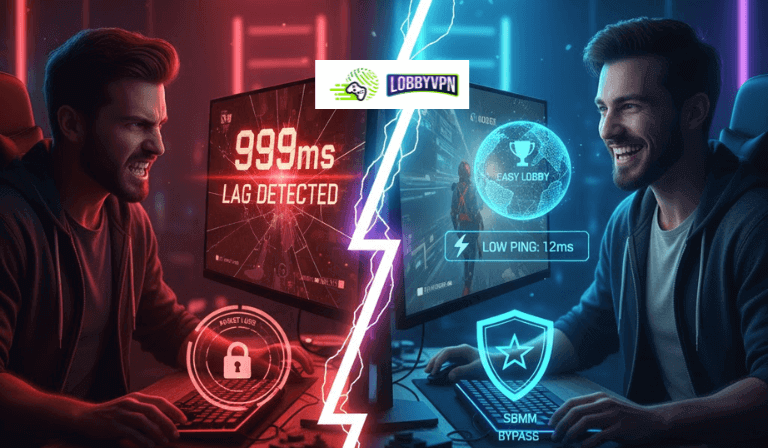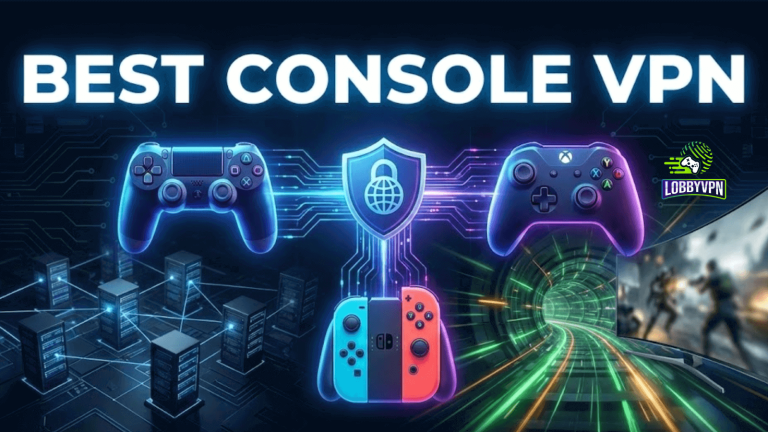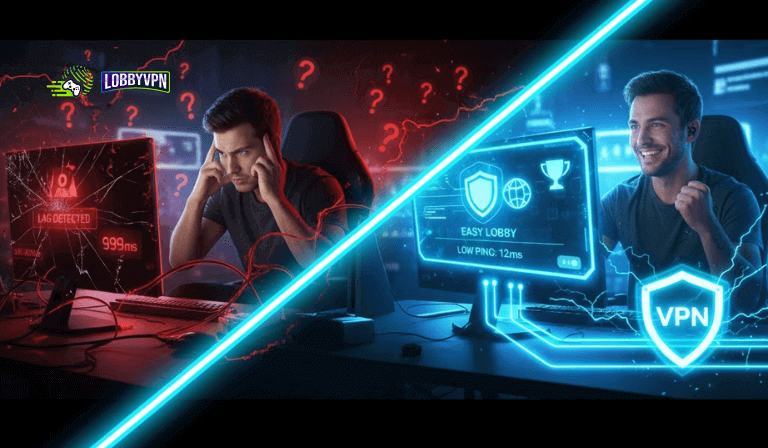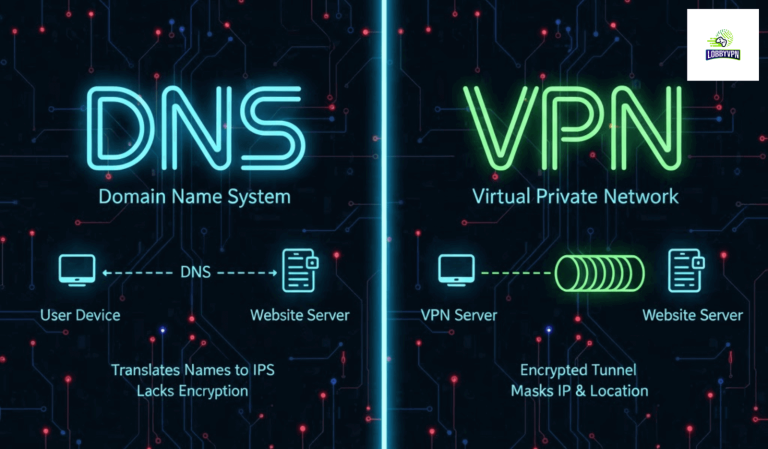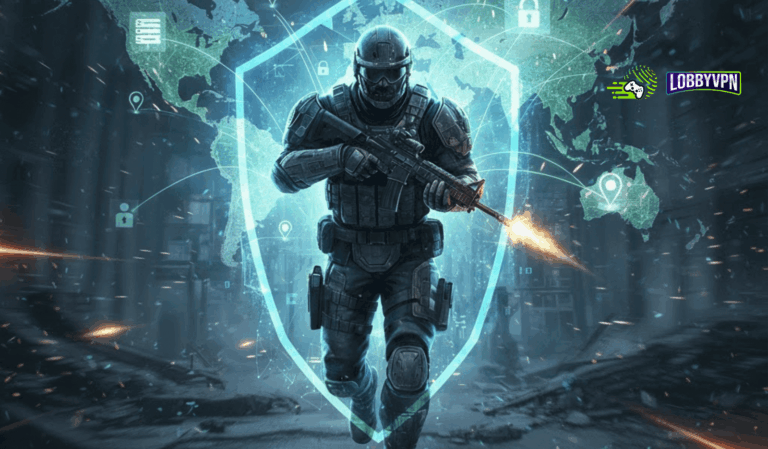Why Gamers Need a VPN — The Ultimate 2025 Guide
Online gaming isn’t just about skill—it’s about speed, stability, and freedom. A Gaming VPN helps you level up your experience by reducing ping, preventing DDoS attacks, and letting you connect to game servers worldwide.
Whether you’re trying to access early game releases, play with friends from another region, or avoid bandwidth throttling from your ISP, a gaming VPN gives you the edge you need. Plus, it keeps your data safe while you play, stream, or chat.
Don’t let lag or location hold you back—secure your connection and play without limits with a fast, secure VPN built for gamers.
Lag, IP exposure, regional locks, and DDoS attacks aren’t just annoyances — they can ruin matches, threaten streamers, and cost gamers time and money. In 2025, why gamers need a VPN isn’t a niche question anymore — it’s a practical one. This guide explains how a VPN improves gaming performance, privacy, and freedom across PC, console and mobile.
What Is a Gaming VPN and How It Works
A VPN (Virtual Private Network) encrypts your internet connection and routes it through a remote server. For gamers, this can change routing paths, hide your real IP, and protect traffic from snooping. A gaming-optimized VPN focuses on fast protocols (e.g., WireGuard), geographically strategic servers, and features such as split tunneling and DDoS protection.
LSI terms: gaming VPN, VPN for gaming consoles, WireGuard for gaming
10 Real Benefits: Why Gamers Need a VPN
1. Reduce Lag & Improve Ping Stability
A VPN can sometimes pick a faster routing path than your ISP, reducing ping and stabilizing latency. Best results come from choosing a nearby, low-latency server and using modern protocols like WireGuard.
2. Protect Against DDoS & Swatting
Competitive players and streamers can be targeted with DDoS attacks that flood their IP. A VPN masks your IP address so attackers can’t target you directly.
3. Bypass Geo-Restrictions & Play Early
Access region-locked servers, join friends abroad, or play versions released early in other countries by switching your VPN location.
4. Avoid IP Bans & Server Blocks
IP-based bans block addresses, not people — a VPN gives you a new IP and can be a temporary workaround while you resolve bans responsibly.
5. Secure Public Wi-Fi Gaming
Public Wi-Fi is risky. A VPN encrypts traffic so credentials and session data can’t be intercepted in cafés or dorms.
6. Beat ISP Throttling During Peak Hours
Some ISPs throttle gaming or streaming traffic. A VPN hides your traffic type from ISPs, reducing the chance of targeted throttling.
7. Access Region-Specific Deals & Stores
Use regional storefronts to find different prices and offers. Note store rules — always follow platform terms.
8. Cross-Platform Privacy (Console to Mobile)
Router VPNs enable console protection, while apps cover mobile and PC. This continuity protects your entire home network.
9. Improve Matchmaking Situations (Careful Use)
Connecting to certain regions can influence matchmaking. Use responsibly — deliberate manipulation of regions can violate platform rules.
10. Protect Voice Chat & Streaming Privacy
Hide IPs when streaming on Twitch or chatting on Discord to prevent targeted attacks or doxxing.
VPN Myths Gamers Should Ignore (and the Truth)
- Myth: “VPNs always add lag.” Truth: Good gaming VPNs with nearby servers and WireGuard can reduce or not noticeably increase latency.
- Myth: “VPNs are only for privacy.” Truth: They also help with routing, anti-DDoS, and geo-unlocking.
- Myth: “Free VPNs are fine for gaming.” Truth: Free providers typically lack bandwidth, speed, and server coverage.
How to Choose the Right VPN for Gaming
Core criteria:
- Speed & low latency: Look for WireGuard or gaming-optimized protocols.
- Server network & strategic locations: Presence in target game servers/regions.
- Anti-DDoS capabilities: Especially for streamers and competitive players.
- Router support / console compatibility: Router setup availability for consoles.
- No-logs policy & security: Strong encryption (AES-256 or ChaCha20).
- Split tunneling: Route game traffic outside the VPN if needed.
- Trial / money-back guarantee: Test before committing.
Top features to search: gaming servers, WireGuard, split tunneling, router VPN
Test Setup & Metrics You Should Demand (for Credible Comparison)
If you publish tests or compare VPNs, include:
- Baseline (no VPN) ping, jitter, packet loss
- VPN on nearby server vs. VPN on distant server
- Platform details: PC specs, console via router, ISP baseline
- Protocols tested: WireGuard, OpenVPN, IKEv2
- Metrics visualized: ping graphs, packet loss charts, frame-rate impact
Tip: Use consistent maps (same server region) and time-of-day sampling to ensure fair results.
How to Set Up a VPN for Gaming — Step-by-Step
PC (Windows / macOS)
- Install official client.
- Choose the nearest gaming server or the server hosting friends.
- Use WireGuard if available.
- Enable split tunneling if you want only game traffic routed through the VPN.
Mobile (Android / iOS)
- Install the app from official store.
- Select server, enable protocols.
- For mobile multiplayer, test both Wi-Fi and mobile data connections.
Consoles (PS5, Xbox, Nintendo)
Option A: Router VPN
- Configure VPN on router (recommended).
- All devices on home network use VPN automatically.
Option B: PC Internet Sharing
- Run VPN on PC and share connection—works but adds complexity.
Free vs Paid VPNs — Which Should Gamers Use?
- Free VPNs: Data caps, crowded servers, no DDoS protection — bad for serious gaming.
- Paid VPNs: Better speeds, more servers, gaming features, customer support.
- Budget tip: Look for money-back guarantees and short trials to test gaming performance.
VPN vs Proxy vs DNS Changer
- Proxy: Alters IP but not encrypted — limited privacy, poor for security.
- Smart DNS: Good for geo-unlocking but no encryption.
- VPN: Encrypts traffic, hides IP, and improves security — best overall for gamers.
Real-Life Gamer Scenarios (Mini Case Studies)
Scenario 1 — Streamer under DDoS: VPN hides IP, allows continued streaming with minimal downtime.
Scenario 2 — Player in SEA wants US servers: Switch to US server to play with friends and test latency tradeoffs.
Scenario 3 — College gamer suffering throttling: VPN masks traffic type and reduces throttling at peak hours.
FAQs — Everything Gamers Ask About VPNs
Q: Will using a VPN get me banned?
A: Platforms generally don’t ban VPN usage, but abusing region restrictions or tournament rules can cause issues. Always follow terms of service.
Q: Does a VPN really reduce lag?
A: Sometimes — when it provides a better routing path or avoids ISP congestion. It’s not guaranteed but often helps.
Q: Can I use VPN on PS5/Xbox?
A: Yes — via router VPN setup or internet-sharing from PC.
Q: Which protocol should I use?
A: WireGuard is recommended for most gamers for low latency and speed.
Q: Are free VPNs OK for casual play?
A: For casual play, they may be acceptable short-term, but for reliability, paid VPNs are strongly recommended.
Final Thoughts — The VPN Advantage for the Modern Gamer
Why gamers need a VPN comes down to three core benefits: performance, protection, and freedom. A well-chosen gaming VPN can protect you from attacks, help avoid throttling, and enable access to global servers — making it an essential tool in 2025’s competitive and connected gaming world.
Try a gaming-optimized VPN like Lobby VPN with a money-back guarantee and test it with your setup. Prioritize trialing WireGuard servers near your play region and use router setups for console protection.


